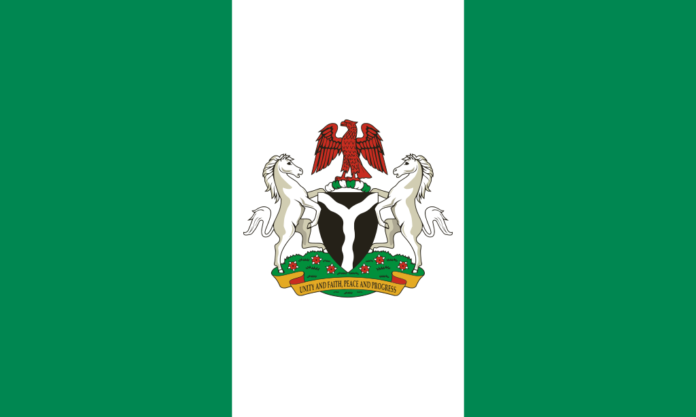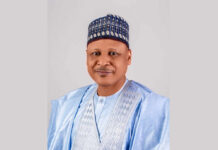The political atmosphere is tensed up in the country, as top leaders previously regarded as the core of national leadership are now at each other’s throats threatening an all out political war. The result of these false aspirations has been chaotic feelings and disbelief in the minds of Nigerians. An informal description has been given to these so-called national leaders, who are mostly former presidents and their extended line of followers, occupying various commanding heights of the economy.
To get to the desired political level from this situation of anarchy, the nation must search for near-perfect and highly disciplined leaders who can turn the economy around to the level that will rival other developed nations. It is possible that in the near future, Nigeria may produce goal-getters and unassuming leaders as experienced between 1950 and 1960, who can execute credible socio-political programmes that will lead to notable national growth and improve the welfare of citizens, if the right steps are taken now. Within this extreme, such desired leadership pursuits will embrace successful wiggle out of the arms of prevalent poverty that has assailed Nigerian citizens and marred them in the grip of social imbroglio. The fact remains that our past political leaders have overwhelmingly portrayed themselves as mere house ad gate keepers who delight in feeding fat on the national political misadventure that has led to widespread misfortunes of people.
However, it is too late to put the entire blame over national socio-economic disasters on the past and present leaders. To say the truth, every mature Nigerian has a part of guilt in the past political misadventures and misplacement of the nation’s developmental priorities as clearly charged. It will be necessary here to critically examine the basic reasons that have often pushed our political leaders to the quagmire of unmitigated failures and unabated corruption at the corridors of power.
Nigerians should not at this instance be so much concerned with nominating and electing political candidates who merely fulfill the normal and reasonable indices of leadership that can account for positive or efficient performance. In a closer look, it may be glaring that set on the right performance barometers, the supportive mentality of would-be leaders for good governance may have been jettisoned for mundane gifts and grafts. Rather, Nigerians ought to expeditiously consider for leadership positions, dutiful and knowledgeable men and woman who are highly intelligent. This is because with the innate ability, rapt attention to details, effective communicative knack, passion for good governance and reasonable exploitative interest of diverse national resources, any leader that emerges will be capable of handling the affairs of the country with severity and acumen.
In the time being, the political candidates presented as leaders for public offices have not been absolutely fair, impartial to national interests or devoid of nepotism. Thus, with no reasonable ability to differentiate between personal, family and public relationships and matters that cause political discords or disaffection in the national interests, these basically celebrated political leaders required the capacity to differentiate between skewed political inclinations as well as personal and group interests. Most importantly, they should be quite capable of aligning with the overall interests of electorates. They must as well not become the drain-pipes for siphoning public funds or psychologically unstable so as not to act reasonably in matters of national interest. Further, they need to observe national realities while shunning the allure of becoming or ever being drug barons, couriers or addicts with the tendency to push the country towards the abyss of national calamity.
In order to be able to elect good leaders for Nigeria, citizens must consider reasonable and highly experienced professionals who have achieved acknowledged strong habits of living and positive relationship principles. They also must believe in the absolute success of democracy and have the willingness to accept political defeat at any time that changes are ushered in. Ironically, our past leaders did forget that politics is not a do or die affair, deliberately machinated group conflicts and winning at all costs, but a sovereign exercise to produce decent winners as leaders. Hence, leader-losers during general elections can readily re-strategize to take advantage of future elections to walk their ways back to power, instead of resulting to machinated violence.
Unfortunately, some Nigerian leaders are not fully equipped with the sophisticated system of political give-and-take. Thereby, their leadership buffoonery and selfish display in pursuance of sit-tight-syndrome in power has always destroyed the nation’s nascent democracy and often led to fratricidal wars that scuttle the political process and usher in military jack-boot diplomacy.
Whenever contending electoral issues are not properly managed by electoral institutions and adjudicated by a competent court of law, political disorder brews in the most despicable manner. Recently, the Independent National Electoral Commission (INEC) declared the Saturday September 22nd 2018 governorship election in Osun State inconclusive. The electoral body said on the issue that the number of cancelled votes is higher than the margin between the top two candidates. On this ground, INEC issued a full statement on the election outcome declaring Thursday, September 27th 2018 as the date for a supplementary election in the state.
In my view, the Nigerian situation has not really changed radically from the exposition in the fiction book – “Ake” written by Wole Soyinka. In this novel, the suffering of the protagonist did not debar his being overthrown by assailants. Therefore, the APC should still be wary of the strivings of its opponents, just as it was able in all odds to overwhelm the PDP in the 2015 polls.
In line with this, the former Zambian President, Kenneth Kaunda as Poku 2013 cited, once commented that the Government may begin to take responsibility for misguided actions only when it recognizes that its citizens are bleeding from self-inflicted wounds.
It will be a novelty game if in the casting of votes in 2019, the mandate which is the only weapon that Nigerian electorates have demeans to the acceptance of temporal bribes and inconsequential gifts that will in future mar their political destiny and those of their children. Electorates ought to bear in mind the fact that the nation is presently bleeding from the self-inflicted wounds of bribery and corruption as well as selfishness, the skewed management of natural resources, bad management and criminal attitudes of political leaders. The opportunity is now rife for the electorates in this dispensation to reflect on the reasons why Nigeria is continually going high in the path of political and economic destructions.
Patrich Chabal in his tract reminded his audience of the lyrics in the famous song by Fela Ransom Kuti in 1978 – “Suffering and Smiling” and suggested that the forthcoming elections should be used as an opportunity to escape from the tragedy and trajectory of suffering and smiling in our system. Nigerian electorates ought to be conscious of the fact that politicians have been a sort of financial burden on the society, always making policies that they do not fulfil and in consequence abandoning them and aspiring for other new positions.
Again, they must be reminded that any choices they make during elections will always influence their future. In the last election for example, electorates considered their votes as the whip to chase out nonchalant and erring politicians who performed below expectations. Although, some electorates cast their votes for candidates who could pay them required stipends for temporary survival, the monies collected were their “pound of flesh” as most politicians immediately became inaccessible after assuming office.
Finally, it is not yet time to despair, rather we can only hope for a better future in agreement with the words of Lyndon Johnson which says ‘yesterday is not ours to recover, but tomorrow is ours to win or lose.’ This gives me hope and inclination for Nigerians to forget about the politician. If the Nigerian electorate can get it right this time, there will be only one way for Nigeria which will be the way forward.
Queenette Efih Writes from the Web Content Management Unit of Information Technology Department, Federal Ministry of Information & Culture, Abuja – (Edited: Ogar Nchu)





